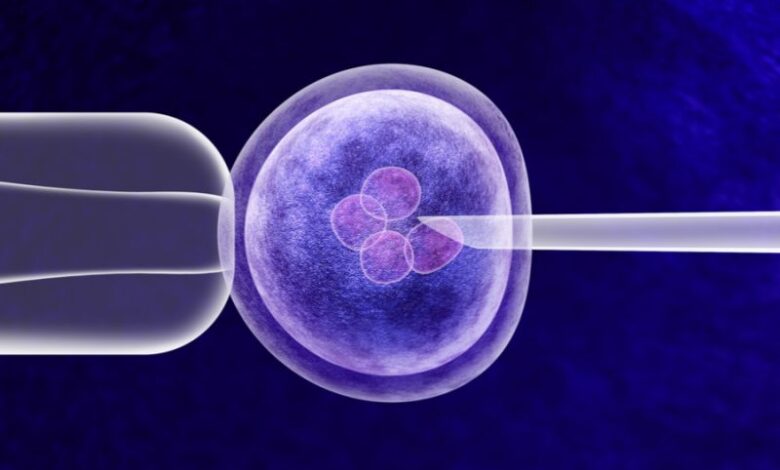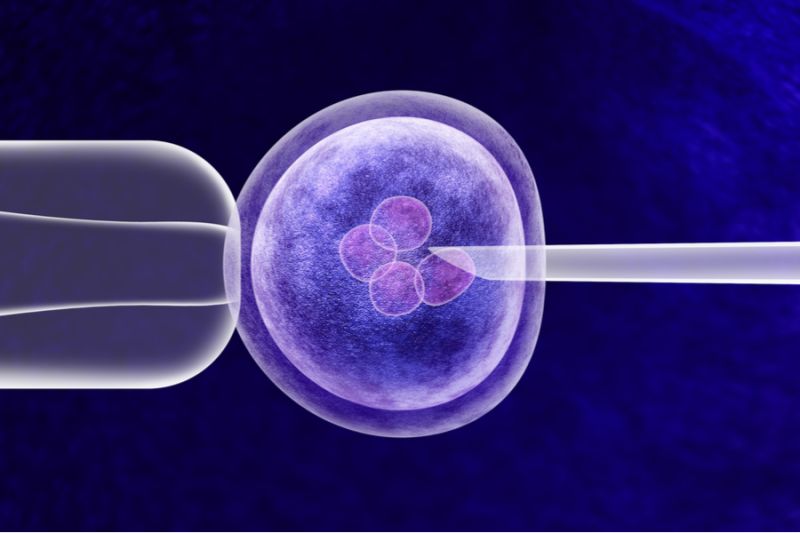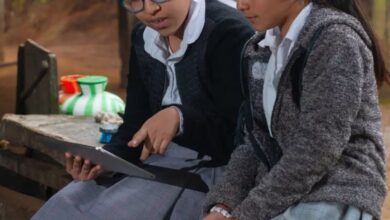First British baby with DNA from three people is born after IVF procedure

 Gene editing in vitro genetic CRISPR genome engineering medical biotechnology health care concept with a fertilized human egg embryo and a group of dividing cells as a 3D illustration. Via Shutterstoc / null
Gene editing in vitro genetic CRISPR genome engineering medical biotechnology health care concept with a fertilized human egg embryo and a group of dividing cells as a 3D illustration. Via Shutterstoc / null CNA Newsroom, May 10, 2023 / 10:05 am (CNA).
The first baby born in the United Kingdom with DNA from three parents was born after doctors performed a revolutionary IVF procedure designed to prevent rare but dangerous mitochondrial diseases.
The news that “less than five” children have been born in the U.K. through this process as of late April was first reported by The Guardian. This is the first time the Human Fertilisation and Embryology Authority (HFEA) has confirmed any children in the country being born through this process. The HFEA avoided disclosing the exact number of babies to protect privacy.
The Parliament of the United Kingdom has approved two methods for altering the DNA of an embryo by including genetic material from a third person. The procedure is only permitted for couples who have a strong likelihood of passing down a dangerous mitochondrial disorder. The two techniques are maternal spindle transfer (MST) and pronuclear transfer (PNT).
The first birth of a baby with DNA from three parents took place in Mexico in 2016 after doctors performed the procedure using the sperm and egg of a Jordanian couple.
Both methods create a child who has two genetic mothers and one genetic father. The PNT method also requires the destruction of embryos. The MST process does not necessarily require the destruction of embryos, but researchers did destroy embryos as part of the researching process.
Through MST, nuclear genetic material is removed from the mother’s eggs and transferred to donated eggs that have had their nuclear genetic material removed before being fertilized with the father’s sperm. Through PNT, the mother’s eggs are first fertilized with the father’s sperm in a lab and then the nuclear genetic material is transferred to donated eggs that have had their nuclear genetic material removed.
“Mitochondrial donation treatment offers families with severe inherited mitochondrial illness the possibility of a healthy child,” the HFEA said in a statement. “The HFEA oversees a robust framework which ensures that mitochondrial donation is provided in a safe and ethical manner.”
As of May 10 the HFEA Statutory Approvals Committee has approved this treatment for 32 patients.
“All applications for treatment are assessed on an individual basis against the tests set out in the law and only after independent advice from experts,” the HFEA statement read. “These are still early days for mitochondrial donation treatment and the HFEA continues to review clinical and scientific developments. … We understand that the team at Newcastle hopes to publish information of their mitochondrial treatment programme in peer reviewed journals shortly.”
When Parliament was considering the initial research in 2015, it faced opposition from the Catholic Bishops’ Conference of England and Wales, which accused Parliament of approving the methods too hastily and objected to the destruction of human embryos in the treatment process.
“There are also serious ethical objections to this procedure which involves the destruction of human embryos as part of the process,” a statement read at the time. “The human embryo is a new human life, and it should be respected and protected from the moment of conception.”




